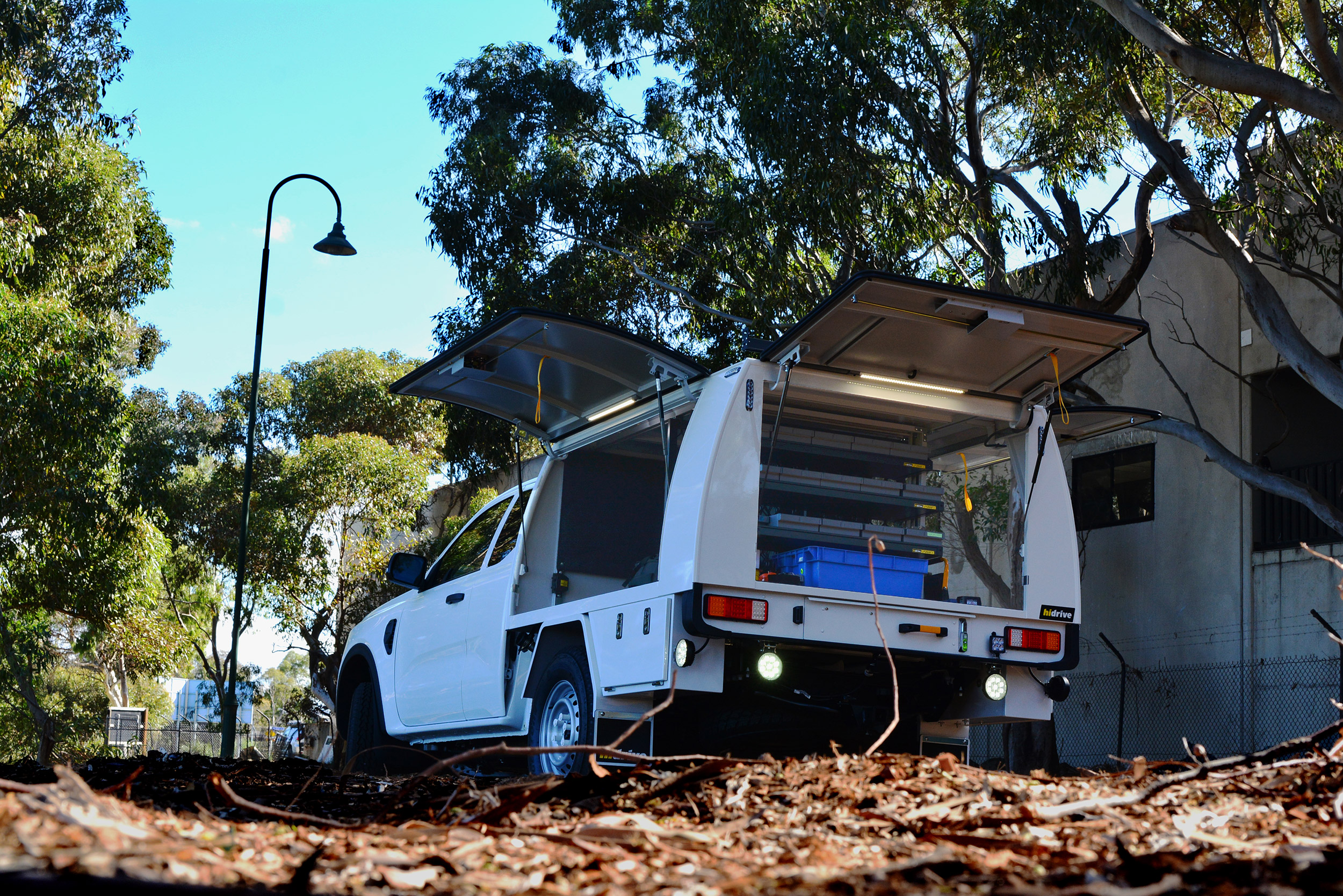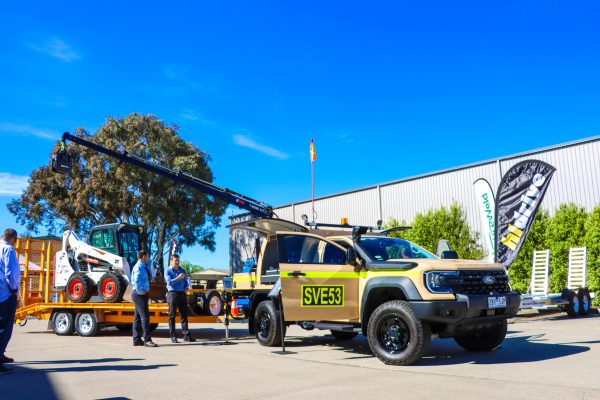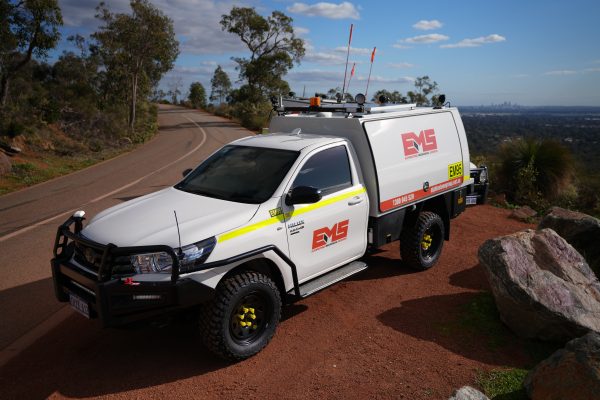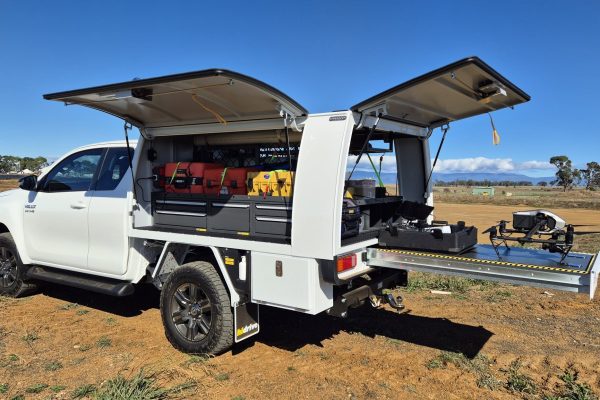For modern fleet management organisations, sustainability isn’t just a value—it’s a measurable target. From electric vehicle adoption to emissions tracking and compliance, every component in your fleet matters. That includes your service body. Hidrive, one of Australia’s leading lightweight service body manufacturers, is helping businesses transition to more efficient operations with aluminium service bodies that are engineered for unmatched durability, functionality, and fuel savings.
Key Takeaways
- Lightweight aluminium construction reduces vehicle emissions and fuel use
- Modular, fit-for-purpose tray and canopy systems extend service body life
- Solar-ready builds reduce generator and idling reliance in remote jobs
- Australian-made service bodies ensure shorter supply chains and high quality
- Tailored solutions include secure storage, roof racks, accessories, and sales support
Summary Table
| Feature | Sustainability Benefit | Operational Advantage |
| Aluminium service bodies | Lower emissions, fuel efficiency | Increased payload, lower fuel costs |
| Modular trays and canopies | Reduces waste through re-use | Fit-for-purpose layouts, easily reconfigured |
| Solar panel integration | Powers tools off-grid, lowers reliance on engine idling | Ideal for remote and electric vehicle fleets |
| Secure storage + accessories | Supports tool protection and safety | Enhances job efficiency and functionality |
| Australian-made manufacturing | Lower transport emissions, ethical sourcing | Faster support, quality assurance, local sales support |
Aluminium Bodies Drive Lower Emissions and Higher Efficiency
Hidrive’s aluminium service bodies are significantly lighter than steel, reducing the total weight of your vehicle. That weight saving translates into real-world efficiency gains: lower fuel consumption, fewer emissions per kilometre, and improved performance across diverse fleet operations. For electric vehicles, reduced weight equals extended range—making aluminium trays a natural match for sustainable transport.
Hidrive bodies also meet the highest standards for structural integrity, allowing your fleet to maintain functionality without compromise. Whether it’s a single ute or a large fleet, these service bodies deliver reliable performance that lasts.
Modular Fit-Outs: Tailored for Fleet Longevity
Unlike welded steel builds, Hidrive’s modular design allows trays, canopies, and internal storage to be transferred to a new vehicle when one is retired. This reduces waste and provides long-term value across vehicle life cycles.
Each setup is tailored to suit your team’s specific requirements—whether you’re transporting power tools, safety gear, spare parts, or sensitive electronics. Secure storage compartments, rear drawers, house doors, and tool mounts can be added as needed.
Hidrive trays are also engineered to be functional and flexible. They perform well in harsh Australian conditions, helping businesses across trades, infrastructure, and field services stay on track with minimal downtime.
Solar-Ready Options: Smart Power for Smarter Operations
Sustainability extends beyond emissions. Hidrive’s optional solar integration helps power internal systems like LED lighting, inverters, and jobsite tools. This reduces the need for idling or external generators, cutting operational noise and emissions further.
Solar is particularly valuable for remote-area jobs, mobile workshops, and councils. When paired with electric vehicles, solar power creates a self-sufficient platform—an important step in the transition to cleaner, more efficient fleet operations.
Ute Canopies, Roof Racks, and Accessories: Built for the Job
Hidrive offers more than just bodies. Optional ute canopies, roof racks, ladder holders, and modular accessories create a full ecosystem of solutions tailored to each trade.
Whether you’re outfitting a single vehicle or an entire team, Hidrive ensures a perfect fit. Each body is engineered with safety, accessibility, and load distribution in mind. This gives customers greater control over functionality and ensures tools and equipment are securely housed while in transit.
Australian Quality, Engineered to Perform
Hidrive is proudly Australian-made, with all service body manufacturing taking place under strict quality control. That means lower embedded carbon due to local supply chains and faster access to dedicated sales support, service, and replacement parts.
From initial consultation to delivery, Hidrive’s team works to ensure your body is fit for purpose and built to meet the needs of your industry. Whether you’re in utilities, construction, infrastructure, or field servicing, Hidrive provides tailored solutions that perform reliably in Australia’s harshest environments.
Final Thoughts
Sustainable fleet solutions start with the service body. By choosing Hidrive, businesses not only reduce emissions and fuel use, but also extend the lifecycle of their fleet assets. With options that suit specific operational needs—from electric vehicle compatibility to secure storage and solar integrations—Hidrive is helping organisations optimise performance while aligning with modern ESG standards.
Ready to create your next fit-for-purpose fleet solution? Get in touch with our team to discuss a tailored service body that meets the highest standards of quality, innovation, and efficiency.
FAQs Answered
-
What are the benefits of aluminium service bodies in Australia?
Aluminium service bodies offer strength without unnecessary weight, improving payload capacity and compliance with GVM limits. Hidrive’s co-bonded aluminium builds are corrosion resistant, durable, and engineered for harsh Australian conditions, giving fleets long-term reliability and lower operating costs. -
How do solar-ready service bodies work in Australia?
Solar-ready service bodies integrate roof-mounted panels and charging systems that power tools, lighting, and onboard equipment. Hidrive designs fitouts that allow trades and fleets to operate efficiently off-grid, reducing idling time, fuel use, and emissions while providing clean energy in remote locations. -
Can service body trays be transferred between vehicles in Australia?
Yes. Hidrive’s modular service body trays are designed for transferability. This means a fitout can be unbolted, refurbished, and re-mounted onto a new chassis of similar size, extending the lifespan of the investment and reducing waste across the fleet. -
What makes a service body sustainable in Australia?
A sustainable service body is lightweight, durable, and designed for re-use. Hidrive uses aluminium construction to reduce emissions through lower fuel consumption, while modular systems allow fitouts to be reconfigured or transferred instead of replaced, supporting circular economy practices. -
Are service bodies compatible with electric vehicles in Australia?
Yes. While EVs typically have lower payload capacities due to battery weight, Hidrive’s lightweight aluminium service bodies give fleets more flexibility. By minimising tare weight, our designs help electric vehicles carry essential tools and equipment without breaching compliance limits.



